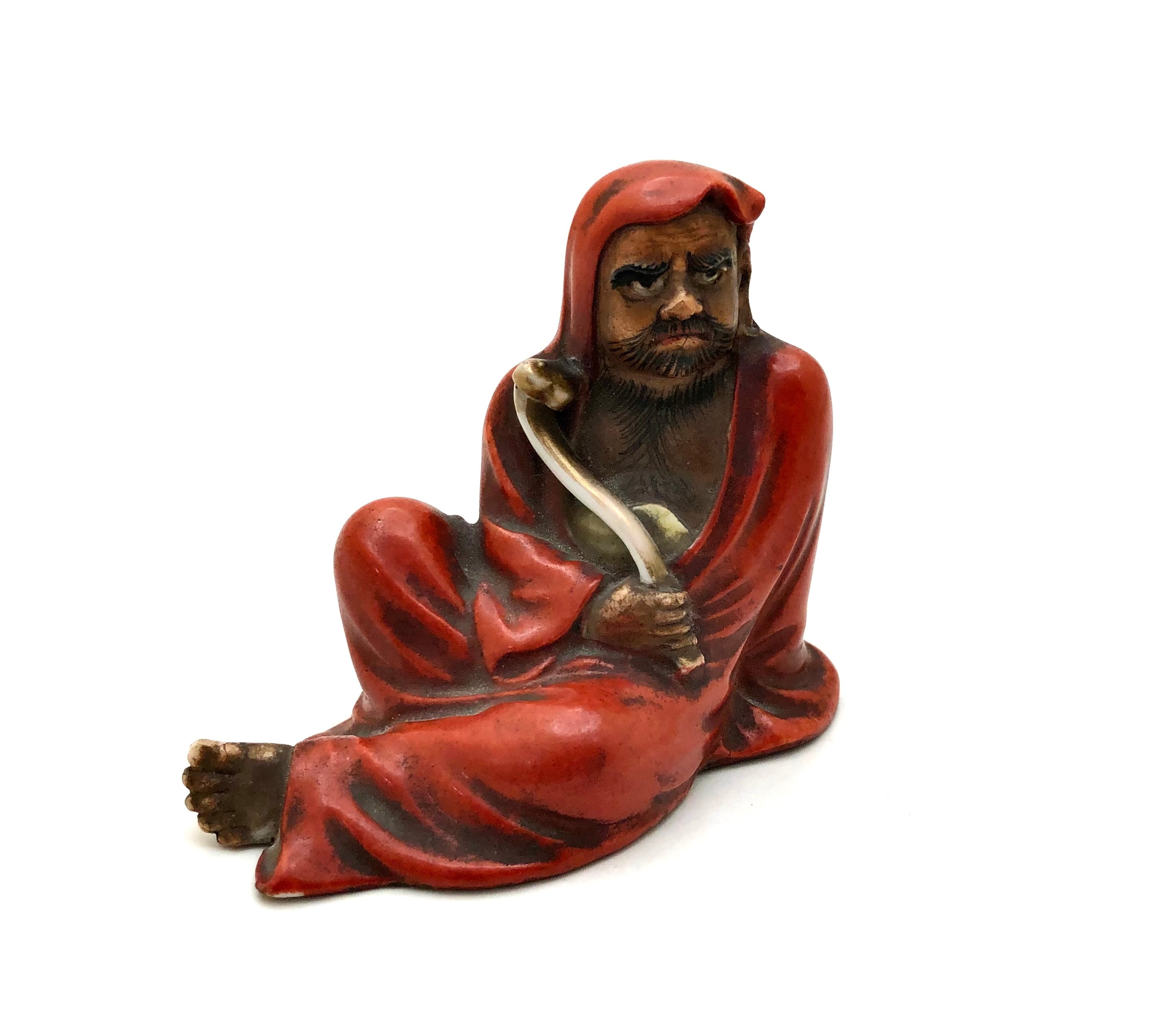
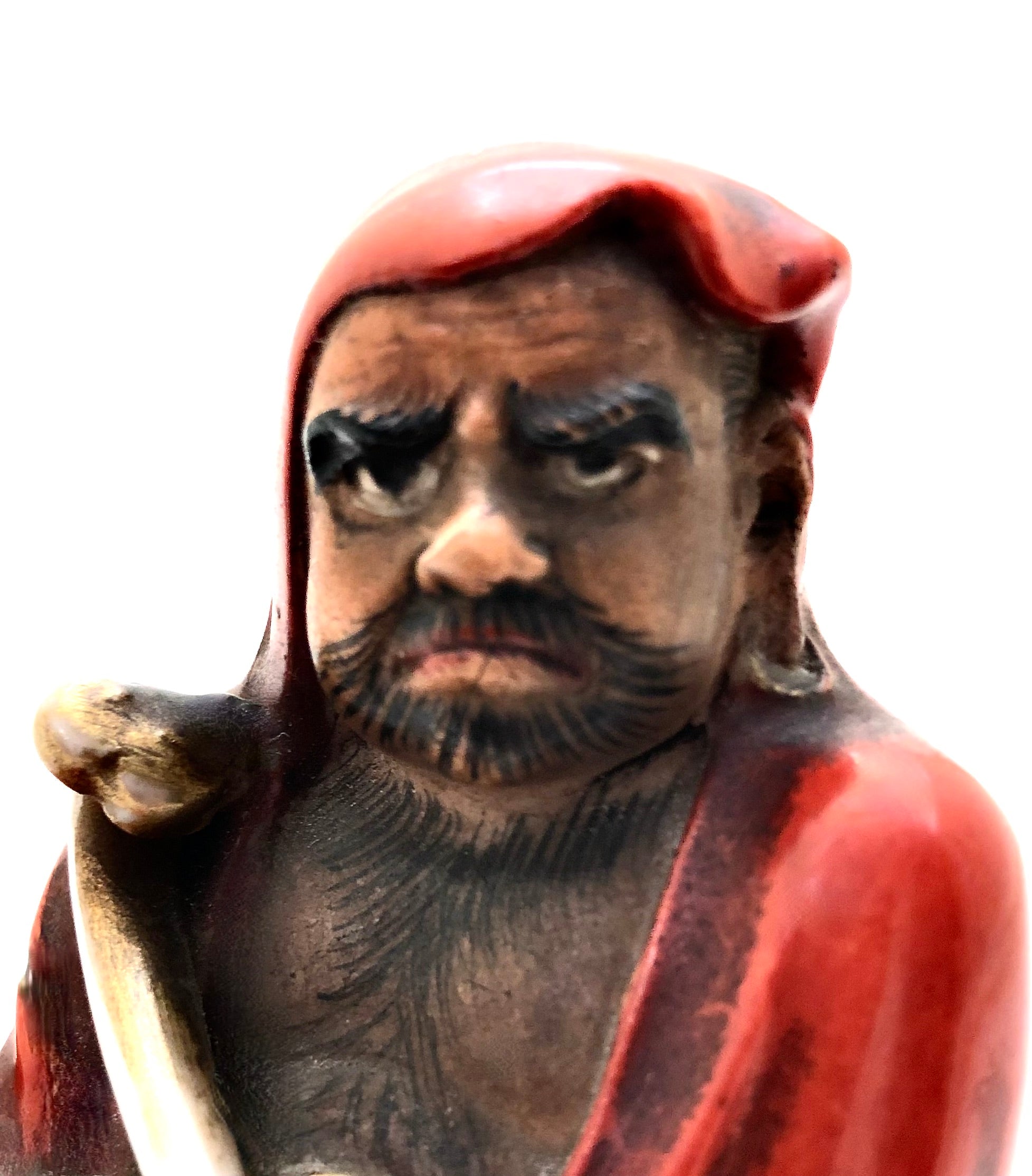
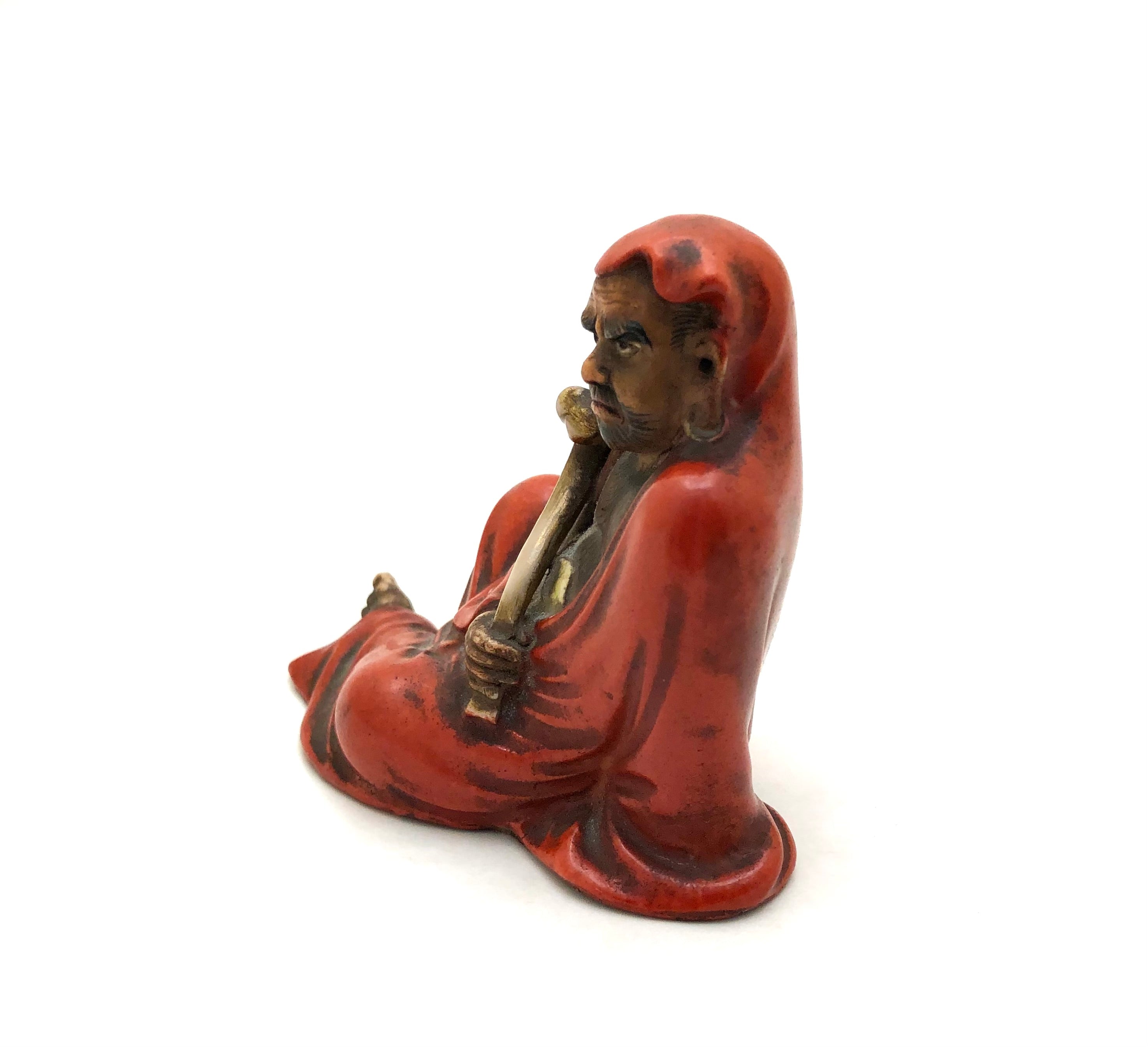
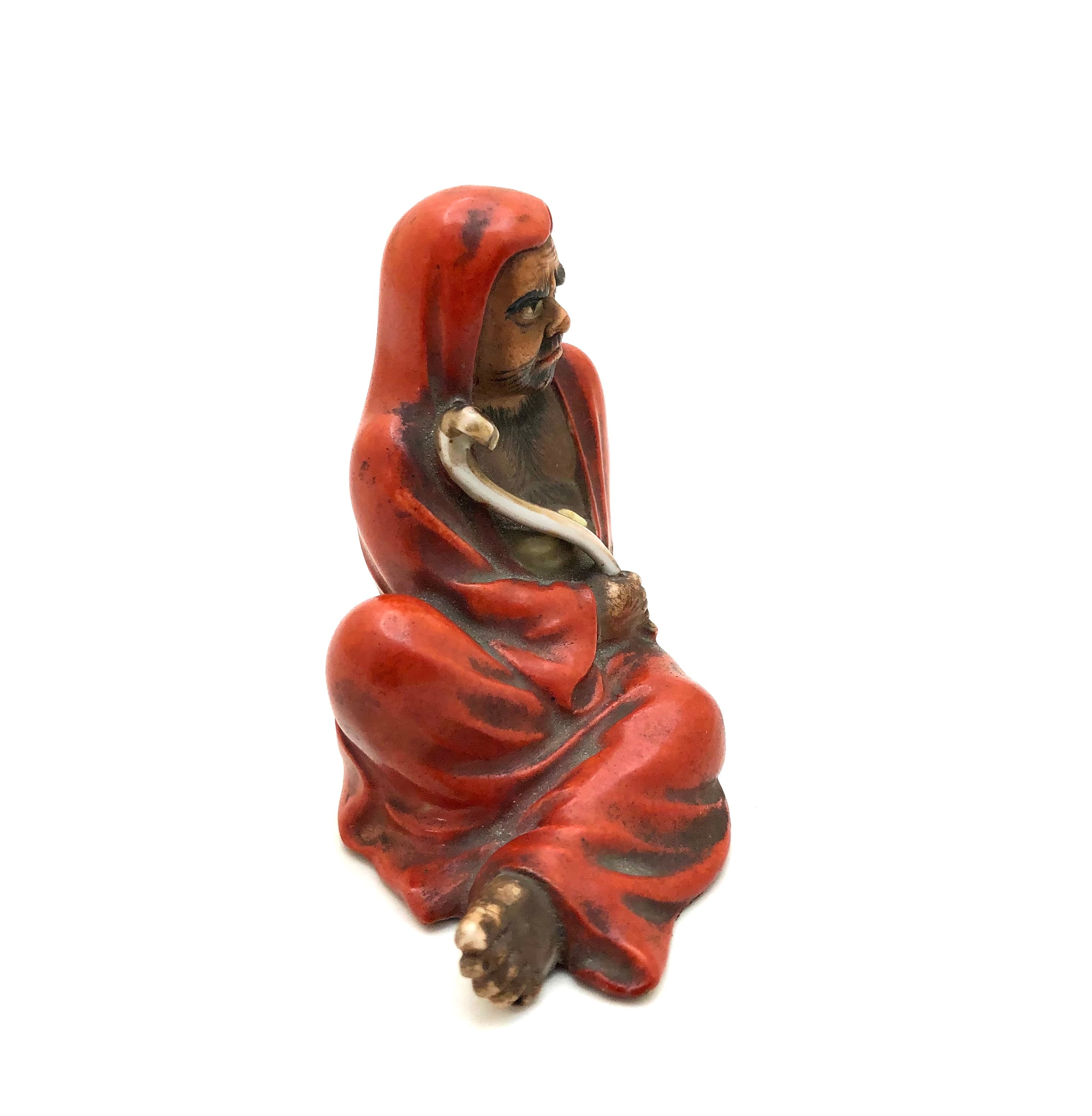
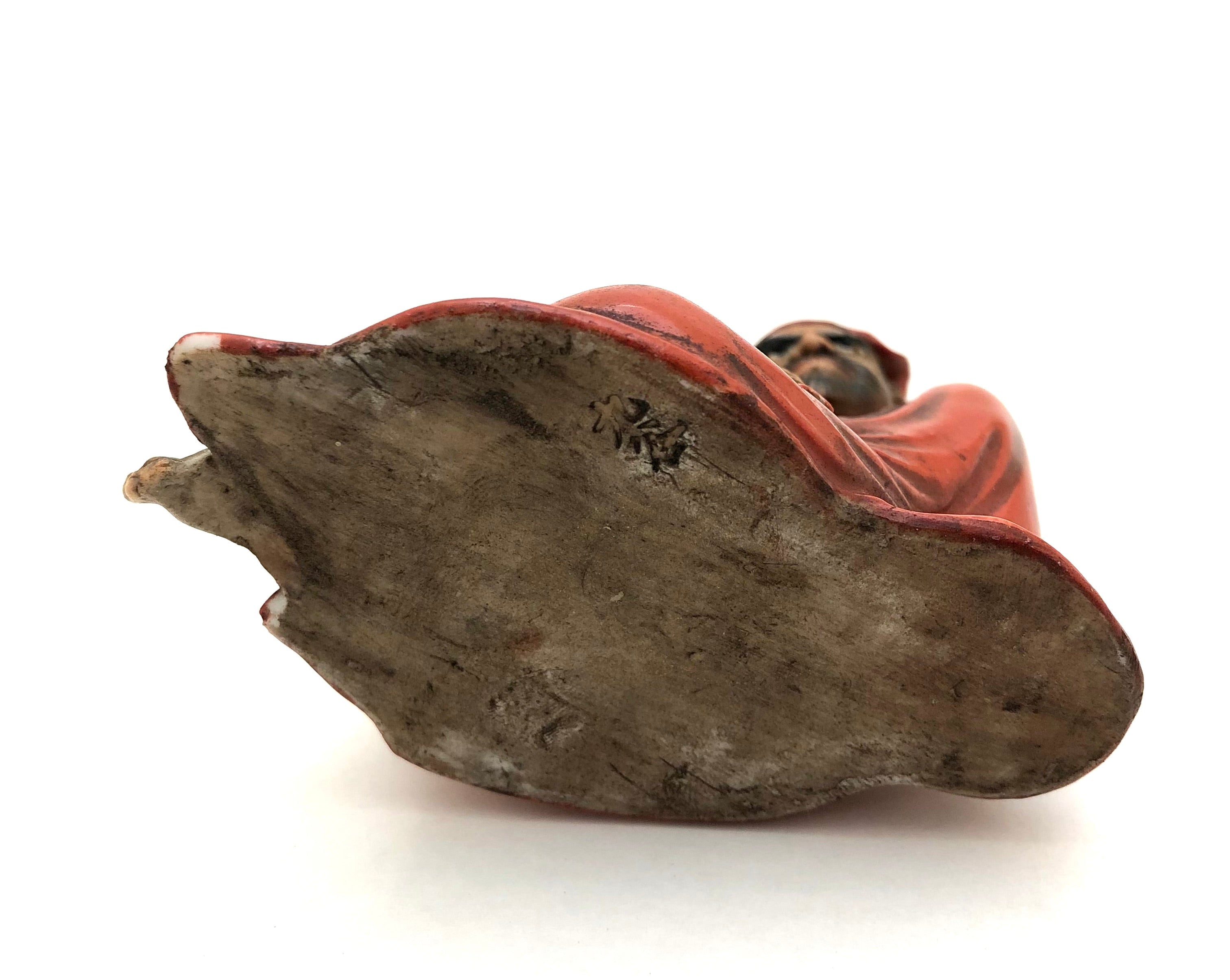
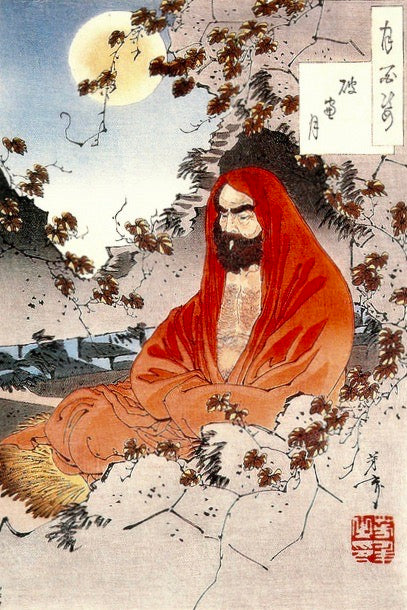
Old Japanese Sumida Gawa Figure of Reclining Daruma
Dimensions: 3-1/8”h x 3-1/2”l x 1-3/4”w
Daruma, a Zen Buddhist Monk is shown reclined in a monastic costume typically seen by the mid-sixth-century founder of the Zen (Ch’an) sect of Buddhism. The face of this vintage figure is intense and full of radiance and expression. His power is embedded in his benevolent facial features with expressive eyes, large eyebrows in the shape of a crane, an elongated ear with an ear loop, and a detailed flaring beard and delicately painted chest hair connoting longevity. This exceptionally find figure is dressed in a variegated saffron & crimson robe and cowl finished in overglaze enamel, (the color of the robe of a high-ranking religious figure). He is in a reclined, relaxed, and contemplative position holding a glowing enameled mother-of-pearl & gold Ruyi nyoi Septer, which is shaped as a short curled staff with an imitation on one end of a lingzhi fugus, a traditional symbol of longevity. It also carries religious significance as a reminder of a lotus, the sacred flower in Buddhism.
This piece was most likely made as a scholar’s object or a piece of personal religious art that were luxury goods of their time, but rather than wealth represented the physical embodiment of the scholar’s intellectual curiosity and aesthetic taste. The detailing is so finely done that you can almost count every hair on his face, chest, hands, and feet. Even the large toe on his foot is glazed. This figure was purchased out of a California estate. He is described almost to a "T' in Sandra Andacht's Oriental Antiques and Art book and appraises him in the $1,000-1,250 dollar range. At the bottom of the figure is the Sumida Gawa impressed mark.
Condition: Exceptional condition exhibiting an aged patination and meticulous care. There are no missing elements, no scratches, minimal imperfections related to daily use, and all detailed elements intact. “As is” means the object has not been cleaned or restored and retains the original craftsmanship, meeting the standards of the collector of this Japanese folk art genre.
